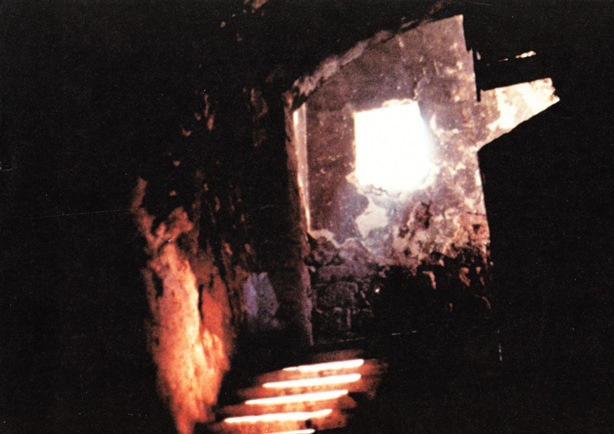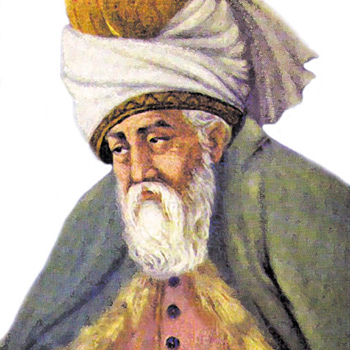The views expressed in our content reflect individual perspectives and do not represent the authoritative views of the Baha'i Faith.
In the closing pages of his mystical treatise The Seven Valleys, Baha’u’llah wrote that “the heart is endowed with four stages, which would be recounted should a kindred soul be found.” – The Seven Valleys, p. 41.
Then, in his subsequent book The Four Valleys, written about the path of the soul and addressed to a Sufi mystic named Shaykh Abdu’r-Rahman of Kirkuk–Baha’u’llah’s friend and devoted admirer—the prophet and founder of the Baha’i Faith outlines the mysteries of our inner search for growth. In beautifully poetic terms, Baha’u’llah gives every spiritual seeker a magnificent gift, by drawing a map of the archetypal human spiritual journey, detailing the stages in the progress of the soul, and helping everyone find their way on the seeker’s path.
To understand this remarkable book and its deeply mystical language and allusions, a little background may be helpful.
At this point in his life, Baha’u’llah had already suffered imprisonment, torture and exile. Not yet forty years old, his nascent Faith horribly persecuted, his family impoverished prisoners, his predecessor The Bab recently executed by firing squad, Baha’u’llah—like Abraham, Moses, Christ, Buddha and Muhammad before him—voluntarily left civilization behind in the spring of 1854 for a solitary sojourn in the wilderness. He journeyed, on foot and dressed as a poor traveler, carrying nothing but a change of clothes and an alms-bowl called a kashkul, to the uninhabited mountains of Iraqi Kurdistan.
The kashkul, carried by poor dervishes and usually carved from the shell of the fruit of the coco de mer palm, symbolized the traveler’s journey on the ocean of mystic knowledge.
In this austere, self-imposed exile, Baha’u’llah lived alone for some time on a remote mountain named Sar-Galu, sleeping in a stone hut or in a cave. He spent his time in seclusion, prayer, meditation and reflection for two years, suffering and struggling to unburden his soul and come to terms with the mission revealed to him two years before in the Black Pit of Tehran:
I roamed the wilderness of resignation, traveling in such wise that in My exile every eye wept sore over Me, and all created things shed tears of blood because of My anguish. The birds of the air were My companions and the beasts of the field My associates. – quoted in Shoghi Effendi’s God Passes By, p. 120.
Despite the hunger, the silence, the solitude, the abject poverty and the privations of Baha’u’llah’s wilderness sojourn, he later wrote that the period of voluntary isolation brought him pain, anguish–and blissful joy:
We betook Ourselves to the wilderness, and there, separated and alone, led for two years a life of complete solitude. From Our eyes there rained tears of anguish, and in Our bleeding heart there surged an ocean of agonizing pain. Many a night We had no food for sustenance, and many a day Our body found no rest. By Him Who hath My being between His hands! Notwithstanding these showers of afflictions and unceasing calamities, Our soul was wrapt in blissful joy, and Our whole being evinced an ineffable gladness. For in Our solitude We were unaware of the harm or benefit, the health or ailment, of any soul. Alone, We communed with Our spirit, oblivious of the world and all that is therein. – Baha’u’llah, The Book of Certitude, p. 250.
During that solitary period, Baha’u’llah’s joy and gladness began to emerge in odes, prayers, poems, soliloquies and prose. Called “the first fruits of his divine pen” by Shoghi Effendi, the Guardian of the Baha’i Faith, these insightful, revelatory writings emerged as his earliest works, compositions of deep mystical meaning and striking, inspirational beauty.
Some of those lofty writings eventually found their way into the hands of the people of the region, which brought Baha’u’llah to the attention of the leading Sufi mystics there.
One of those Sufi leaders, Shaykh Abdu’r-Rahman, led the Qadiriyyih Sufi order in the Kirkuk region during the middle of the 19th Century, and had more than a hundred thousand followers who practiced the Sufi virtues of detachment, meditation and transcendence. The Sufis—Muslims who emphasize the mystical inner dimensions of spirituality—typically belong to different turuq, or orders, each organized around the teachings of a Sufi master. Like Zen masters, the leaders of various Sufi orders study and contemplate the mystical realities for their entire lives. Shaykh Abdu’r-Rahman’s Qadiriyyih order famously focused on the eternal inner human struggle to transcend the ego.
That focus and their friendship led to Baha’u’llah’s epistle to the Shaykh, originally called The Seeker’s Path (Risalih-i-Solouk, in Persian), and now known as The Four Valleys. At the beginning of his small book—less than 20 pages long—Baha’u’llah employs the classical conventions and the elevated literary style of the culture and the period, with the inclusion of quotations from the Qur’an and from the great Sufi poets like Rumi and Sa’di. In the introduction to The Four Valleys, Baha’u’llah quotes one entrancing couplet from Rumi:
Each moon, O my beloved, for three days I go mad;
Today’s the first of these—‘tis why thou seest me glad. – Rumi, The Fragile Vial.
For the Sufis, the madness that comes with the full moon symbolizes joyful, mystical intoxication with the love of the transcendent and the divine. In The Four Valleys, Baha’u’llah describes the steps we can all take on the ladder of ascent toward that enraptured spiritual plane.


















Comments
Sign in or create an account
Continue with Googleor